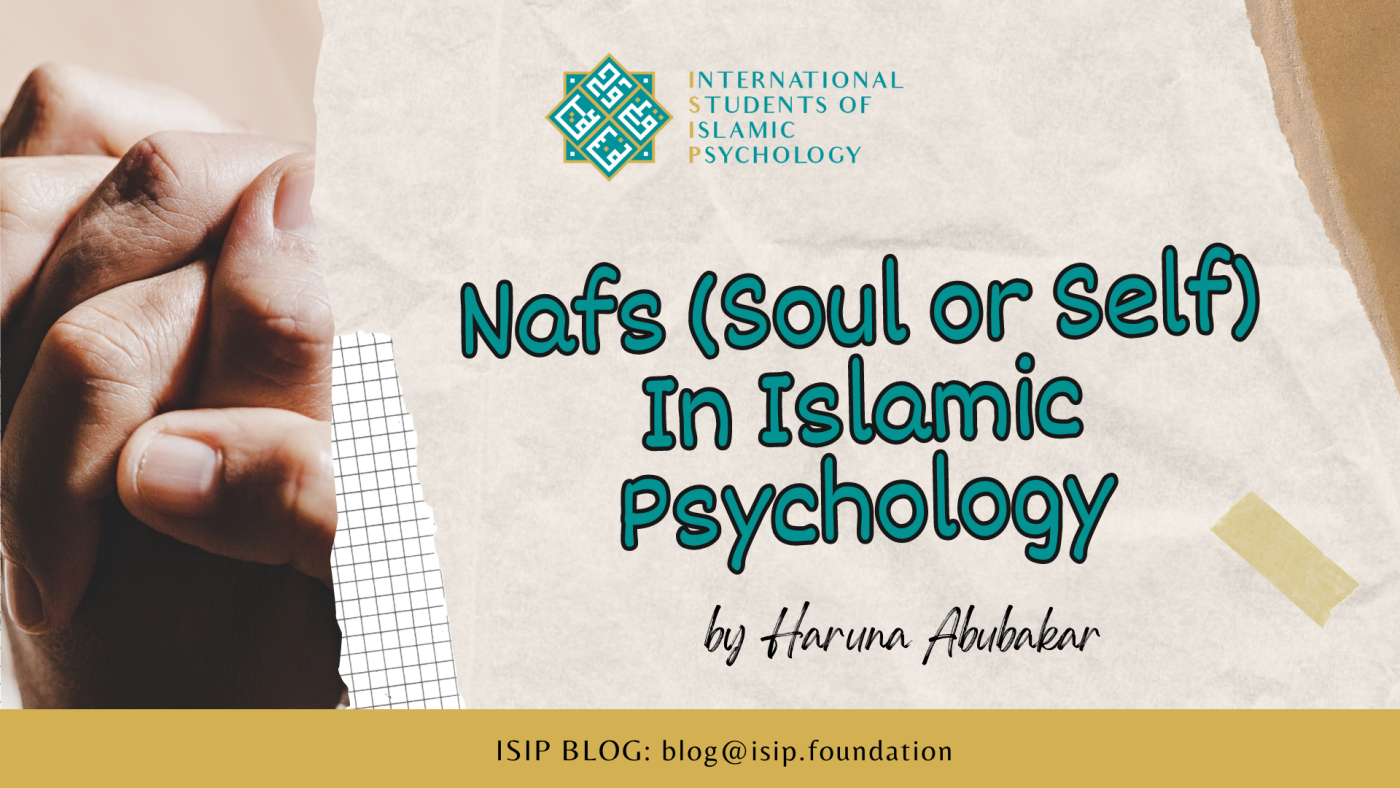
This is the fourth component of Islamic Psychology. The concept of the nafs (often translated as “soul” or “self”) is central to understanding the human experience. The nafs is seen as the essence of a person and it is believed to be a complex and multifaceted aspect of the human being.
There are several different levels or stages of the nafs in Islamic psychology. Each stage represents a different aspect of the self. These levels are often described as the “lower self” (nafs al-ammara), the “reproaching self” (nafs al-lawwama), and the “content self” (nafs al-mutma’inna). References from Quran are discussed below:
The lower self (Nafs al-ammara) represents the ego or the selfish desires and motivations of a person. It is seen as being driven by base instincts and desires. It can lead a person to engage in harmful or sinful behaviours. Quran (12:53) explained more about nafs al-ammara, which says, “Nor do I absolve my own self (of blame): the (human) soul is certainly prone to evil unless my Lord does bestow His Mercy: but surely my Lord is Oft-forgiving, Most Merciful.”
The reproaching self (Nafs al-lawwama) represents the conscience or the ability to recognize and feel remorse for wrongdoing. It is seen as a step above the lower self, allowing a person to recognise the error of their ways and seek forgiveness. This Quranic verse (75:2-3) explains more about nafs al-lawwama, which says “And I do call to witness the self-reproaching spirit: (Eschew Evil).”
The content self (nafs al-mutma’inna) represents the highest level of the nafs, and it is characterised by inner peace, contentment, and spiritual fulfilment. It is seen as being in harmony with God’s will and is achieved through spiritual discipline and submission to God. Quran (89:27-30) tells us to consider more about the content self, which says “O soul that art at rest! Return to thy Lord, well-pleased (with Him), and He will draw you into His Presence.” And Quran (2:207) “And there is the type of man who gives his life to earn the pleasure of Allah: And Allah is full of kindness to (His) devotees.”
Finally, the concept of the nafs in Islamic psychology highlights the complex and multifaceted nature of the human self and it provides a framework for understanding and striving for personal and spiritual growth. The nafs is seen as the source of both good and evil within a person and it is believed that the key to spiritual development is to cultivate the higher aspects of the nafs and to overcome the lower aspects.
Ways to Seek Higher Aspect of Nafs
Cultivation of the higher aspects of the nafs can be achieved through the practice of taqwa which is often translated as “God-consciousness” or “piety.” Taqwa involves cultivating a deep awareness of Allah and striving to live in accordance with His will. This involves practising the pillars of Islam, such as prayer and charity, and striving to embody virtues such as patience, compassion, and kindness.
Cultivation of the higher aspects of the nafs can also be achieved through the practice of dhikr, which is often translated as “remembrance” or “meditation.” Dhikr involves repeating the names of Allah or phrases from the Qur’an as a means of focusing the mind and cultivating a deeper connection with Our Creator.
May Almighty Allah protect our souls from the manipulation of the serpent. Amin

Very comprehensive and well written explanation of the concept of nafs.alhamdulillah Its also inspiring readers to learn ways to seek higher aspects of self through cultivating taqwa.
Very important article for everyone. Reading this article will enable one self to unstand the concept of self (Nafs). May almighty help us with daily Dhikr and guide us to the right path. Amin
Ma shaa Allah, quite concise in terms of explaining the 3 main states of the soul with references.
It’s important to expand a bit in my opinion for the audiences that “hover” between the first 2 stages and maybe in compassionate laymen terms highlight that it is “human” to sometimes slip and fall into a different stage.
Yes its better but will later think about because dominance of one leads to the personality of a person.
We would like to know if there are other types of souls in our tradition.
assalamualaikum, is there any further explanation about the dynamics of Nafs through human stage of development?
Know about Nafs
Its a very grateful. Ma shaa Allah, quite concise in terms of explaining the 3 main states of the soul with references.